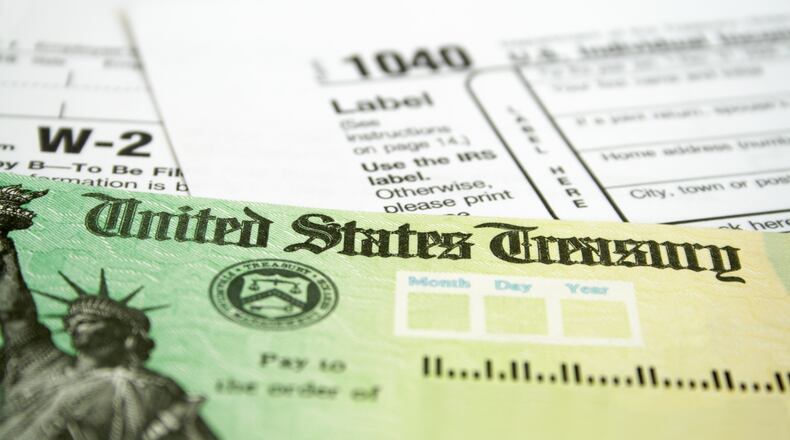The income tax rebates the state sent out last spring may wind up being subject to federal taxes, at least for some Georgians.
The Internal Revenue Service is recommending that taxpayers hold off on filing their tax returns if they received a rebate from the state in 2022.
The IRS issued the guidance due to the agency’s uncertainty over whether the rebates can be taxed.
“We are working with state tax officials as quickly as possible to provide additional information and clarity for taxpayers,” the IRS said in its statement.
The agency is recommending that people who got rebates hold off on filing their tax returns until they receive further instruction from the IRS. The IRS also urged those who have already filed to hold off on amending their returns.
Last year, using surplus tax money, Georgia rebated $250 for single filers and $500 for couples filing joint returns. People who didn’t owe state income taxes — such as seniors living on pensions and/or Social Security — didn’t receive the rebates.
If the IRS rules federal taxes are owed, some experts said it may only affect those who itemized deductions when they filed their taxes. Most filers use the standard deduction and don’t itemize.
After all the bills were paid and agencies returned leftover funds, the state’s surplus for fiscal 2022, which ended June 30, was about $6.6 billion. So Gov. Brian Kemp is calling for another rebate this year, and legislation has already been filed to grant one.
The Georgia Department of Revenue said it was “evaluating this week’s statement by the IRS and awaiting any follow-up that will come in the future.
“We cannot provide further guidance until the IRS makes a final determination,” said Austin Gibbons, communications director for DOR.
The Tax Foundation, a Washington think tank, was critical of the IRS for waiting so long to decide the issue. It said 17 million Americans had filed their returns by the time the IRS suggested waiting.
“No one knows exactly what the IRS will determine, and you certainly don’t want to have to file three times,” said Jared Walczak, vice president of state projects for the foundation. “It’s unfair to taxpayers that we’re more than a week into February and still don’t know what millions of them are supposed to put on their federal tax returns. This could have — and should have— been avoided.”
About the Author
Keep Reading
The Latest
Featured




